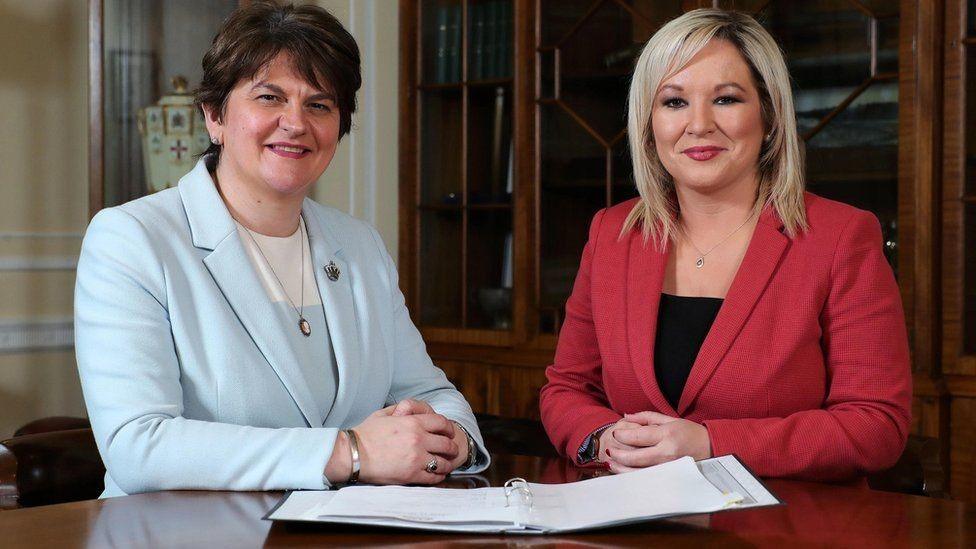Stormont: Brexit, the centenary and Covid-19 will dominate
- Published
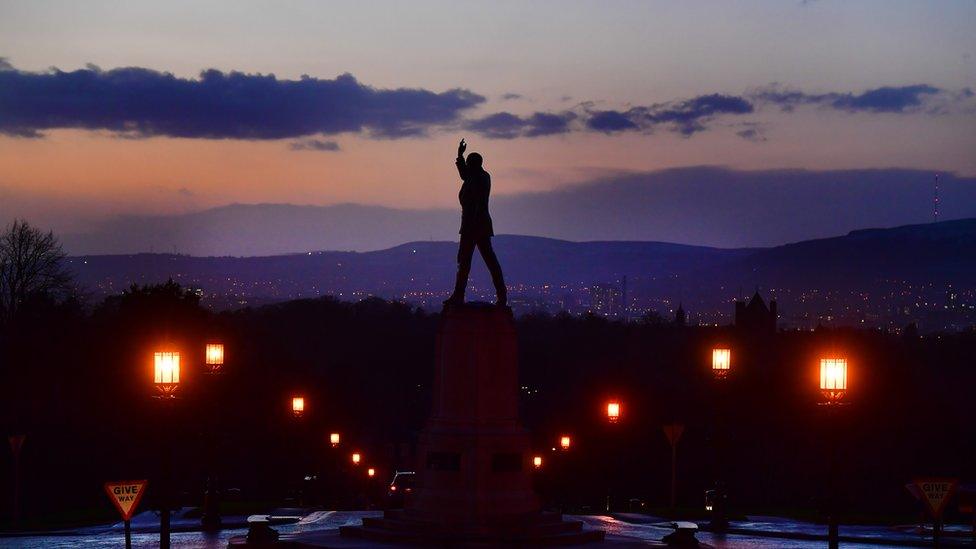
While many of us will be hoping 2021 brings less stress and confusion than last year, it's clear the politicians at Stormont still have their work cut out.
BBC News NI looks at what's on the agenda that will dominate discussion in the coming months.
Brexit
The trade agreement reached on Christmas Eve by the UK and EU brought to an end months of acrimony over whether it would be deal or no deal.
But that does not mean the debate is coming to an end at Stormont.
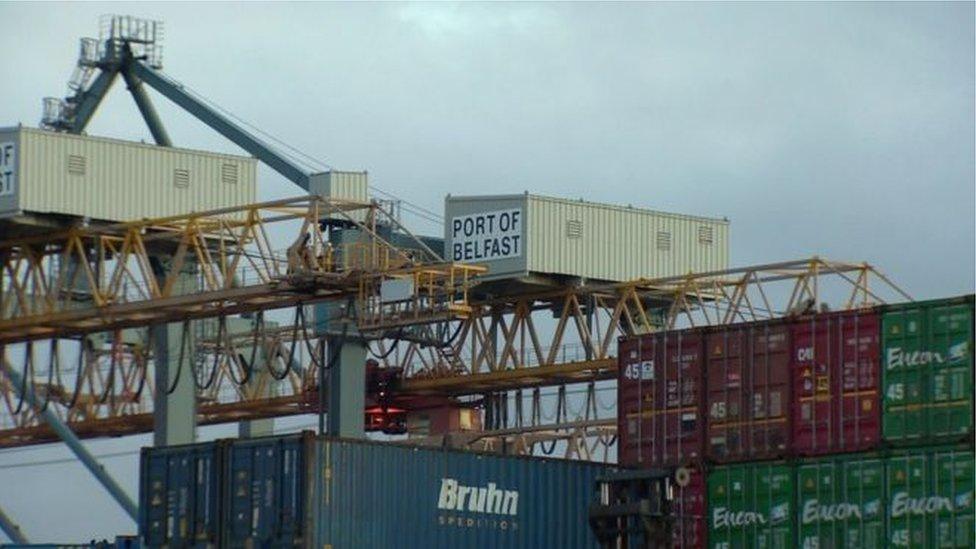
The Democratic Unionist Party (DUP) and Sinn Féin, who jointly lead the power-sharing executive in Northern Ireland, take a different stance on Brexit.
Sinn Féin campaigned against it while the DUP supported it but later rejected Boris Johnson's initial deal, which created a border in the Irish Sea as a consequence of the NI Protocol.
The protocol does that by keeping Northern Ireland in the EU's single market for goods and by having Northern Ireland apply EU customs rules at its ports.
That means goods arriving from Great Britain will be checked and controlled at Northern Ireland's ports.
Stormont's assembly members (MLAs) were recalled early from Christmas recess to discuss the detail of the trade deal and voted by a majority to again "reject Brexit", while all of NI's MPs who take their seats voted against the trade deal in the Commons last week.
But the politicians oppose the government's plan for different reasons, with unionist parties arguing the special arrangements for NI pose a risk to the union.
While nationalist parties, Alliance and the Greens say Northern Ireland voted to remain in the EU in the 2016 referendum and that the result should have been respected.
Regardless of their opposing views, the parties in the Stormont Executive are now faced with the reality of implementing plans that, for various reasons, they did not want and it's likely to continue to spark tensions.
Coronavirus
Northern Ireland ended 2020 with another lockdown that will last until at least the beginning of February, with no certainty about what happens after that.
It is hoped that the restrictions will reduce the transmission of Covid-19 and relieve pressures on the health service that had been building before Christmas.
Imposing a lockdown, however, is a slightly easier decision to take than agreeing what to relax and when.
The executive met on Monday night to discuss the situation in Northern Ireland following a four-nations call with Cabinet Office Minister Michael Gove.
Over the course of 2020, rows around the virtual executive table left relations almost at breaking point and the public confused about what rules to follow.
Ministers know that any further repeats of those late-night arguments could do further damage at a time they have been trying to reset the response.
The nature of the five-party mandatory coalition at Stormont does not make the process any easier.
While the Department of Health is continuing with its vaccination programme, Health Minister Robin Swann has already warned that will run well into this year - meaning further periods of restrictions may be needed, if the rate of infection can't be brought under control and maintained.
One-year anniversary of Stormont's return
Almost 12 months ago, the Stormont parties were engaged in high-stakes negotiations to restore power-sharing after its three-year absence.
The deal the parties were corralled into supporting by then-NI Secretary Julian Smith and Irish Foreign Minister Simon Coveney was New Decade, New Approach.
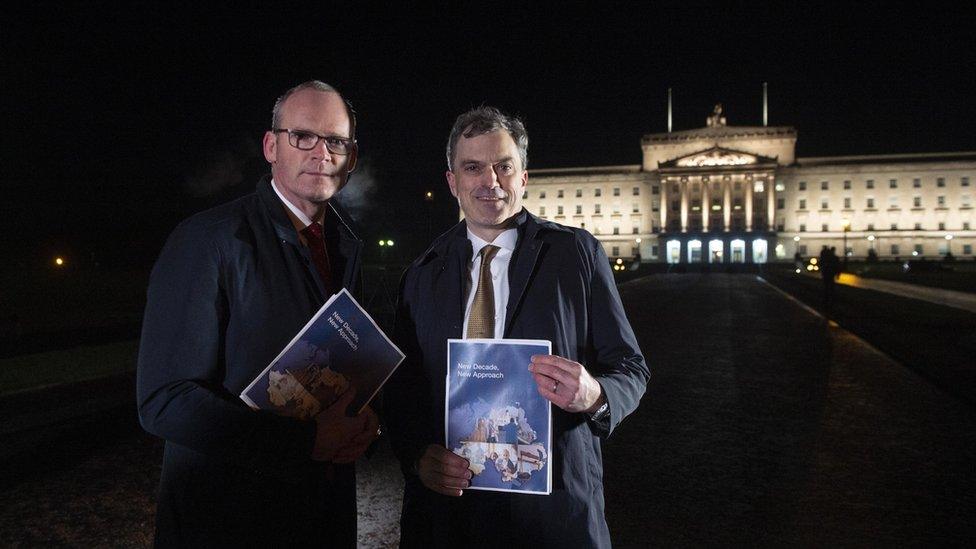
Irish Foreign Minister Simon Coveney (L) pictured with the then NI Secretary Julian Smith after the New Decade, New Approach deal was agreed
But many of the pledges within that 62-page document remain just that, with tackling the pandemic holding up progress in many areas where the parties promised change.
With the anniversary of the executive's return fast approaching, it is likely to face a stock take of how well it has fared in terms of tackling other issues, not least improving transparency and accountability.
They may want to start with trying to appoint a new permanent head of the civil service.
An interim appointment was made in December with Jenny Pyper taking over, after the first and deputy first ministers could not agree on a full-time candidate during the competition process.
Centenary of Northern Ireland
2021 marks another milestone for Northern Ireland: 100 years since its creation after the partition of Ireland.
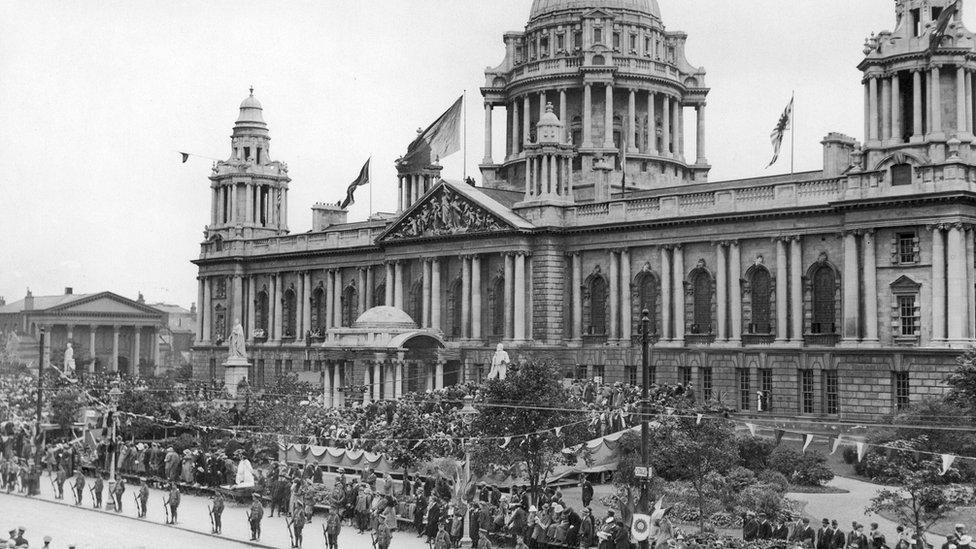
The British government has already announced some of its plans to mark the centenary, but it will not have the support of all Stormont parties.
The obvious split in opinion on the commemorations was demonstrated by First Minister Arlene Foster and Deputy First Minister Michelle O'Neill when they appeared at an event last month and offered contrasting views.
Protestant and Catholic church leaders have said they hope events will help improve community relations, and that they must be handled sensitively.
But regardless of how the centenary is commemorated, the Stormont parties are unlikely to see eye-to-eye on it or what the milestone will mean for political debate in 2021.
There is plenty to keep up with, but BBC News NI will have all the latest developments on these stories and more throughout the coming months.
Related topics
- Published28 December 2020

- Published24 December 2020
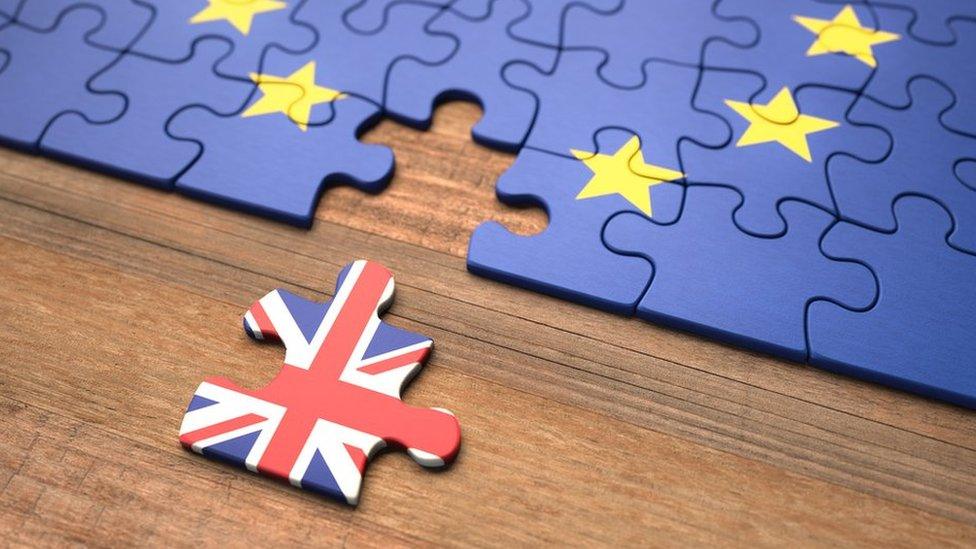
- Published23 December 2020
